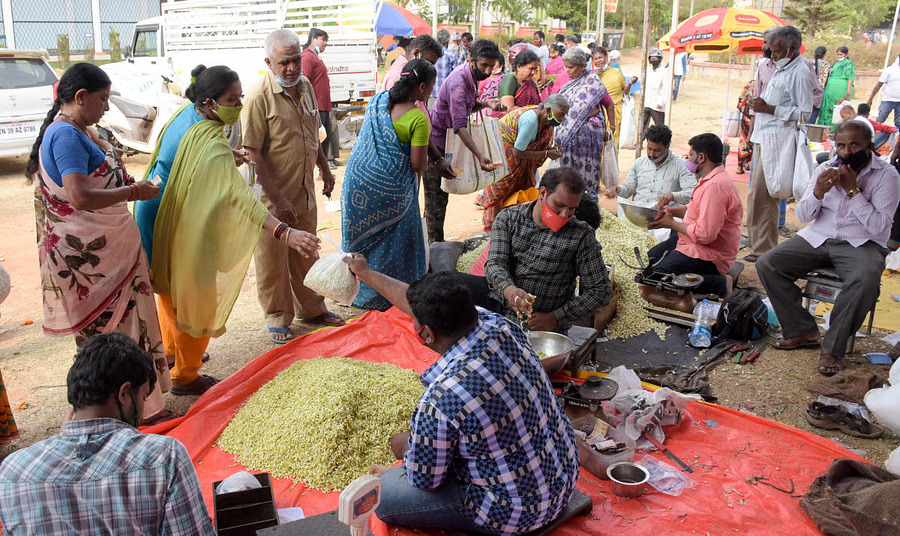A divisive debate has arisen in Karnataka as the Hindu Vendors Union publicly opposes the inclusion of Muslim vendors setting up shops during festivals and fairs. The controversial stance taken by the union has ignited discussions about inclusivity, religious harmony, and the role of cultural events in fostering unity within diverse communities.
The Hindu Vendors Union, representing a group of vendors primarily from the Hindu community, has expressed concerns over the participation of Muslim vendors in festivals and fairs traditionally associated with Hindu religious events. The union’s leadership argues that allowing Muslim vendors to operate during these occasions could dilute the cultural and religious significance of the festivals.
Leaders from the union assert that their opposition is not rooted in religious bias, but rather in a desire to preserve the sanctity of festivals as observed by their community. They claim that the participation of vendors from different religious backgrounds could lead to misunderstandings or conflicts, particularly in the context of cultural sensitivities.
In response, critics argue that such exclusionary measures could fuel division and discrimination, ultimately working against the principles of communal harmony and peaceful coexistence. They highlight the importance of celebrating diversity during festivals and fairs, which can serve as opportunities for communities to learn about and appreciate one another’s traditions.
Prominent leaders and civil society organizations have called for dialogue between the different communities to find a solution that respects the sentiments of all parties involved. They emphasize that open conversations are crucial to bridging divides and fostering a sense of unity within a diverse society like Karnataka.
The controversy has drawn attention to the broader issue of balancing cultural and religious practices while upholding the principles of equality and inclusivity. As Karnataka moves forward, it faces the challenge of maintaining the rich tapestry of traditions while ensuring that all communities feel valued and respected.
It remains to be seen how the situation unfolds and whether a common ground can be reached through conversations and understanding. As the state continues to embrace its multicultural identity, the controversy underscores the significance of promoting tolerance, acceptance, and mutual respect among its diverse population.










